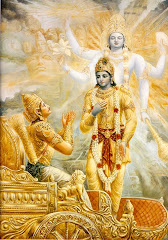
This is the debut novel of Nikesh Rathi, and he has chosen to take the road less traveled vis-à-vis the spate of new writers who have presented themselves for us to sink our teeth into. Thankfully it steers clear of an ill timed, ill developed and thoroughly clichéd love story or an almost love story, that has sadly become de rigueur.
Somewhere @ Nowhere also made it to the Vodafone Crossword Book Award 2011 Longlist – which must have made Nikesh Say Cheese!
The Storyline: The protagonist, Aditya Khanna, is quite a thoroughbred - IIT-IIM-Investment Banker - with an enviable paycheck. But then as all good things in life come to an end, the bubble burst. His company filed for bankruptcy and the dreaded pink slip appeared out of the blue. Instead of going right back to job hunting and diligently scanning various job sites, Aditya decides to embark on a journey - to discover India, no less. But will this journey also lead to self-discovery and clear the cobwebs in his head - that is the crux.
No, he wasn't drawing inspiration from the eventual experience of the supreme joy of full enlightenment by Prince Siddhartha - THE Buddha. You see Aditya was merely one of the many Corporate Buddhas *grin*
But nonetheless he did hope to reap a rich harvest - that of clarity of thought and a perspective on life's meaning and purpose.
Accompanied by a friend - Ashish - yet another victim of the pink slip, they embarked on an unplanned journey, passing through holy places - Haridwar, Rishikesh - en route to the Himalayas, the jungles of Orissa, remote hamlets, villages and small towns, the IT city - Bangalore, pleasure haven - Goa, et al.
Traveling light, without laptop or cell phone - they journey by rickety buses, general compartments of local trains, rented bikes and on foot, staying in small nondescript hotels and lodges, befriending strangers, meeting people they would have never met before, drinking tea from roadside shacks and eating food that would have been labeled "unhygienic" many times over.
Braving the heat and biting cold, unexpected rains, staying unshaved and unwashed - they encounter villagers - farmers and simple hill folks, truck drivers, hotel helpers and caretakers. And a vast number of sadhus! Claiming to have supposedly 'renounced the world' - they go about smearing themselves with ash, emulating the third of the "Trinity", smoking chillums and demanding money or trying to think of ways to make some. This particular group or industry has never put a freeze on hiring even during the bitter Himalayan winters. And they have never been pink-slipped! Rather they are pink slip proof.
Incidentally, this ancient Vedic faith has always stressed upon "Karma Yog" or the "discipline of action". It has never advocated 'renunciation of the world'. Instead urged us to always do our duty or uphold 'Dharma', to the best of our ability - on righteous principles. Of the four paths to realization, Karma Yog is the science of achieving perfection in action. To quote Shri Krishna's immortal words from the Bhagavad-Gita (Chapter II-47):
"Karmanye Vadhikaraste Ma Phaleshu Kadachana,
Ma Karma Phala Hetur Bhurmatey Sangostva Akarmani."
Meaning: "Thy business is with the action only, never with its fruits; so let not the fruits of action be thy motive, nor be thou to inaction attached."
How simple and how relevant, even today! That the Bhagavad-Gita is universally renowned as the jewel of India's spiritual wisdom, it is because of Karma Yog.
Always do your best without expecting the results and you will be happy. Such simple words, yet so profound! No? Sadly spiritual texts and discourses by Gurus these days do not emphasize on doing one's duty. But then earlier we had Munis, Rishis, Maharshis, Devarshis, Brahmarshis, Paramhamsas and Avadhutas. Now we have self styled 'Sadhus', assorted 'Babas' and countless 'Mithyanands'. What a climbdown!
But I digress.
Which of the people that Aditya and Ashish encounter are happy? Who are the ones that have been able to reconcile themselves with their circumstances? What is faith and what role does it play? You will come across these and some more... in bits and pieces in the book.
Suggestions: However their encounters with the truck driver (Harvinder), the nameless sadhu and the hotel helper cum caretaker Robert... make for an interesting read, though I feel there was scope for some more insightful narrative about the sense of vastness, mystery, power and the critical ingredients of our lives.
Certain events and encounters like the one in the jungles of Orissa (now Odisha) are underdone. There is definitely scope for some more content there and the characters, their situations and their conversations could have been better fleshed out. In the absence of which, the emotions that the author would have liked to convey have not come through that well. They seem somewhat barricaded, so to speak.
Ditto Malti. In her case, the metamorphosis is a little too rushed. She is vulnerable, hurt, lonely, shelter less, scared and scarred, and all of this can ebb or be overcome only gradually. We miss that process, that journey.
Even the co-explorer - Ashish - becomes irrelevant, a mere 'tag along' after a while. Additional dialogue to him and more conversation between him, Aditya, the nameless sadhu, Harvinder and Robert would have helped. It may have provided a different perspective. Some conflicts too would have been refreshing... say between Aditya and Ashish.
The author has chosen the impersonal 'telling' route over the more interesting dialogue or conversation format. It's best not to 'tell' your readers what your characters feel. Show them through action. But that's very hard to do, and takes practice. Ruskin Bond excels in this genre but then he is a class act. It's so much easier to 'tell' how the characters feel instead... but it 'takes away' too and gets monotonous after a while, leaving the reader unable to postpone the niggling feeling that the author was perhaps in a hurry to complete the book and maybe, just maybe had a page limit in mind too.
The production quality of the book is average but the book jacket cover is quite attractive. However I feel that the titles of the chapters (e.g., 'Captured', 'The Escape', 'Lost Somewhere', ‘Still a rat?’ etc.) reveal too much and rob off the charm and suspense of the following pages. It somewhat dilutes the interest. Not done.
At only 144 pages, Somewhere @ Nowhere makes for a breezy read. The chapters are short... much like the pages of a diary and give the impression that one is reading the book faster than one actually is. However, some tighter editing to prune out some versatile and advanced filler words and phrases like: "and all", "or something", "stuff" and doing away with the one obvious flaw: the somewhat prosaic and sometimes rather clunky writing... would have greatly helped in making the readers' journey smoother.
With the kind of events weaved into the narrative, a lot more could have been done. With the right mix: some taut drama, conflicts, surprise elements, a few heart tugging moments and by cutting out the deadwood - filler words/phrases and perhaps the urge for a quick closure, this one could have turned out to be a very good read. A very good read in it's own right - a much meatier, insightful and thought provoking read.
My rating: I am going with a 3/5 for Nikesh Rathi's debut novel. It is not a run-of-the-mill story and stands out among the deluge of dreck camouflaged as romantic novels in our bookstores these days and at just Rs. 150/ is light on the wallet too.
However, Somewhere @ Nowhere should have been a longer journey with some more content added to it. There was ample scope for it too. But, for a debut author it is a fairly good attempt. I would say that the book held a lot more promise than it actually delivered. Whether it contains some bits and pieces from the author's own life... my guess is as good as yours. But I feel Nikesh can do much better. It may be a good idea to revisit the storyline before the book gets into its second or perhaps third print run. It will feel complete then.
Details of Book: Somewhere @ Nowhere/ Author: Nikesh Rathi/ Pages: 144/ ISBN: 812231130X/ ISBN-13: 9788122311303, 978-8122311303/ Publishing Date: 2010/ Publisher: Cedar Books - Pustak Mahal/ Binding: Paperback/ Price: Rs. 150/ (Rs. 143 on Flipkart)














Nice write up. I like the way you've kept our interest in this book review! It encourages the rest of us to look for this book and read it.
ReplyDeleteAn aside point on the diversion that you've taken to point out the importance of "karm yog".
While the focus in Geeta is entirely on working in the world with the correct attitude, which you've rightly emphasised, it's not as if a "renunciate life" is frowned upon. There is a particular verse in the Geeta Chap 3, which makes this clear: It says "dvividha nishtha" (2-fold path): gnanayogena saankhyaanaam, karmayogena yoginaam- People who already have a meditative bent of mind can take up renunciation, while the rest of the folk (including Arjuna) who are yet to have that mind set are better off taking to an active lifestyle. That's the way this verse is traditionally interpreted, showing that the renunciate lifestyle is perfectly fine for the select few, who can do justice to it (which is of course very tough). Hence, we may want to keep that point in mind so that we can avoid a generalization.
my 2 cents,
shank
Interesting and balanced review. Lets hope Nikesh matures as a writer and gives us many more readable works.
ReplyDelete@ Shank: Thank you for your kind words and welcome to my blog.
ReplyDeleteYes, I have stressed upon "karm yog" or the "discipline of action" but nowhere have I mentioned, 'renunciation of the world' is frowned upon.
The verse that you have quoted in your comments, i.e., "gnanayogena saankhyaanaam, karmayogena yoginaam" comes before the one I have mentioned in the post, i.e., "Karmanye Vadhikaraste Ma Phaleshu Kadachana, Ma Karma Phala Hetur Bhurmatey Sangostva Akarmani."
"People who already have a meditative bent of mind can take up renunciation, while the rest of the folks (including Arjun) who are yet to have that mind set are better off taking to an active lifestyle."
... That is precisely my point! "Dvividha nishtha" or the 2-fold path is not exclusive of "karm yog" - the science of achieving perfection in action.
People who already have a meditative bent of mind can take up renunciation – that is their karm yog.
While the rest of the folks (including Arjun) who are yet to have that mind set are better off taking to an active lifestyle – that is their karm yog.
The quality, caliber and the motivations of the people, or at least a large chunk of them, who claim to have "renounced the world" these days are there for all to see and make their own conclusions.
That brand of "renunciation" has not been advocated in the Bhagavat Gita.
@ thebutterflydiaries: Welcome back :)
ReplyDelete